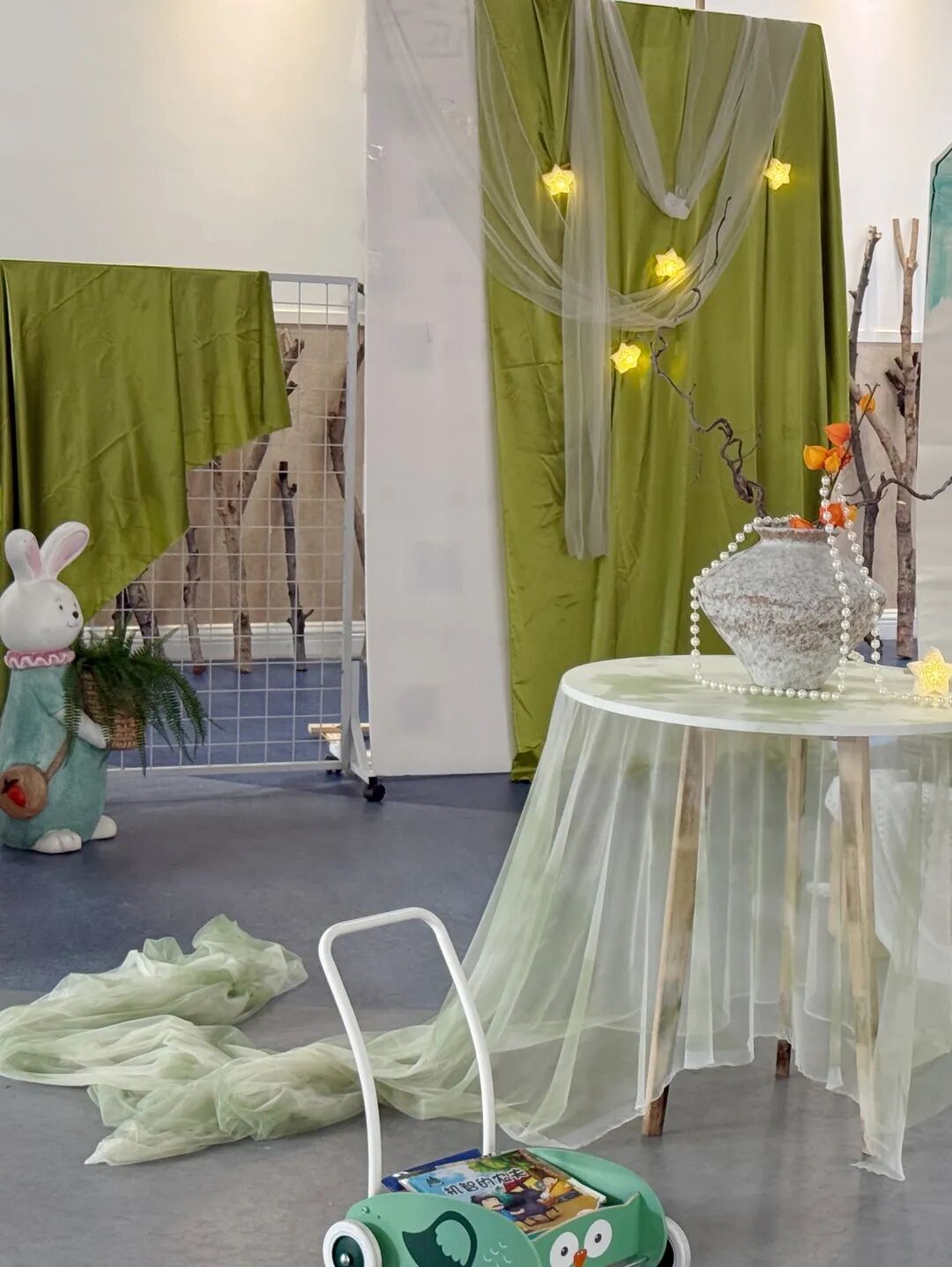鼓励
表扬
YOU ARE SO GOOD
—
从小到大,我们常常会听到“你真棒、你真乖、你真是一个男子汉、你真勇敢”这样的话。
然而,我们并不希望得到这样的表扬,有时甚至感到厌烦。因为如果父母总说我们表现好,当我们表现不乖的时候,心里就会感到特别内疚,特别有压力;父母总说我们是坚强的孩子,当我们想哭泣的时候,却不敢在人前大胆地哭泣。
From small to large, we often hear the words “you are awesome”, “you are so good”, “you’re the man” and “you are brave.” However, we do not want to receive such praise, and sometimes even get bored of hearing it. If parents always say that we behave well, when we behave badly, we will feel particularly guilty and particularly stressed; parents always say that we are strong children. Though, when we want to cry, we dare not be bold in front of people cry.
Such praise is equivalent to putting a label on the child and internalizing it into his heart. They would think that they’re such a person. If they didn’t do well, they would seek the approval of others. At this time, their behavior became a kind of pleasing, rather than a motivation from his heart. The difference between encouragement and praise is that encouragement does not label children in a vague way, but objectively describes children’s behavior. By not saying “you are really capable”, but instead saying “I saw you dress yourself, put on your pants, and tied your shoelaces.” Rather than saying “you painted really well”, instead say “you’re painting the lines very clearly, and the color matching is full of harmony. These butterflies come to life and add a lot of vitality to the whole picture.” The big picture is to describe the children’s details from the accomplishment itself.
In addition, praise is often the protagonist. For example, “You took the first place in the class, which is better than everyone else. I am really proud of you.” Encouragement is based on children. For example, “Your achievements are the result of your efforts, and you must be very proud of yourself.”
Proper encouragement can trigger the child’s self-evaluation and improve his internal motivation to do things. When praised by parents, they often speak a very pleasant language. In the long run, children may easily rely on the evaluation of others without paying attention to their own talent.
The language of encouragement is not as exaggerated and gorgeous as the language of praise. It may be the simple language in our daily life, for example, “I saw that you helped mom clean up chopsticks, bowls and cups. Thank you for following your mother closely when crossing the street. I believe you can do it by yourself.” Such a language is sincere and can bring strength to children.
这样的表扬,等于给孩子贴上了标签,内化到了他的心里。他会认为自己就是一个这样的人,如果没有做好,他就会去寻求别人的认同,这时他的行为就变成了一种取悦,而不是来自他内心的动力。鼓励与表扬的区别在于,鼓励不是空泛地给孩子贴标签,而是客观地描述孩子的行为。不是说“你真能干”,而是说“我看到你自己穿好了衣服,穿好了裤子,系好了鞋带”;不是说“你画得真好”,而是说“你的这幅画,线条很明朗,色彩搭配很协调,这些蝴蝶栩栩如生,给整个画面增添了很多活力”……
简言之,就是从细节上去描述孩子做得好的地方。
此外,表扬常常以家长为主角。例如,“你考了全班第一名,比其他所有人都厉害,我真为你感到骄傲。”而鼓励是以孩子为主角。例如,“你取得的成绩是你努力的结果,你一定很为自己感到骄傲。
恰当的鼓励能够引发孩子的自我评价,提高他做事情的内在动力。家长在表扬时,往往会说很动听的语言,长此以往,可能会让孩子容易依赖于别人的评价,而不关注于自我评价。
鼓励的语言,不像表扬的语言那么夸张、华丽,它可能就是我们日常生活中很朴素的语言,比如,“我看到你帮妈妈收拾了筷子、碗和杯子”,“谢谢你过马路的时候一直紧紧地跟着妈妈”,“我相信你可以自己做决定”…
但是这样的语言却是真诚的,能够带给孩子力量的。
If parents don’t usually know how to use encouragement
如果家长平常不知道如何运用鼓励
#记住鼓励的3个句式
描述式
我看到、我注意到…
例如:我看到你把书桌上的书都归类放好了。
I saw, I noticed… For example, “I saw you put all the books on your desk.”
感激式
谢谢你、感谢你…
例如:谢谢你今天帮妈妈收拾桌子。
Thank you, thank you… For example, “Thank you for helping Mom clean up the table today.”
赋予力量式
我相信、我坚信……
例如:我相信你自己能处理好这件事情。
I believe, I firmly believe… For example, “I believe you can handle this things by yourself.”
The difference between encouragement and praise
其实,家长要说出这些鼓励的语言并不难,但为什么很多人却吝啬于鼓励孩子呢?不是因为不会说,而是因为我们看不到鼓励的正面作用,觉得孩子做得好是理所当然,做得不好才需要指出。
说孩子“聪明”“能干”“真棒”等很容易,我们几乎可以不经思索地脱口而出,而说出孩子具体做的事情,则需要家长用心去看到孩子。正确、恰当的鼓励,不是通过嘴,而是通过心来真正地肯定孩子、欣赏孩子、接纳孩子。
In fact, it is not difficult for parents to use this type of language of encouragement, but yet so many people are still stingy.
Elders should encourage children? Yes, not because we don’t say it, but instead because we don’t see the positive effect of encouragement. It’s natural to think that children do well and need to point out if they don’t do well.
It is easy to say that a child is “smart, capable, and awesome.” We can almost blurt out without thinking, and to say what the child does specifically requires parents to see the child attentively. The correct and appropriate encouragement is not through the mouth, but through the heart to truly affirm the child, appreciate the child, and to accept the child.
了解更多
——————
如果您需要了解更多BBKE相关信息,可以访问www.bbke.cn 或者通过以下方式联系我们。
You can find out more about BBKE on our website, www.bbke.cn or you can contact us by phone!
望京园 Baston.Hope Kingdom:
(8610) 64739197 64733884
太阳园 Baston.Sun Palace:
(8610) 84413316 84413326
无限园 Baston. Infinity Plaza:
(8610) 85738380 85738379
欧陆园 Baston.European Land:
(8610) 58236013 59273452
绿城园 Baston.Green Town:
(8610) 89316473 89316474
华溢园 Baston.Brilliant City:
(8610) 59214810 59214820
首创园 Baston.Creation Square:
(86354) 2516655
培懿园 Baston.Virtue Garden:
(86754) 82772212 82772216
御景园 Baston.Empery Garden:
(86316) 2128391 2128379








